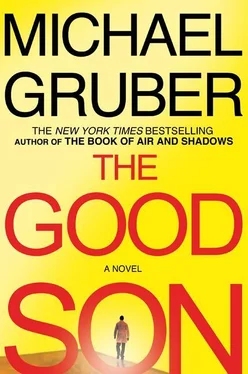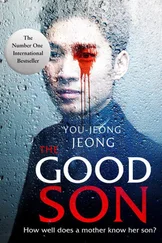“Yes, sir. He was speaking Standard Arabic with a Pashtun accent. I also detected a softening of the Arabic gutterals characteristic of someone who has spent time speaking English.”
“You’re sure about this?”
“About the Pashtun accent? I’m fairly certain about that. On the En – glish, it’s more or less a guess. The colloquy wasn’t long enough for me to make a definitive call.”
Colonel Brand asked, “Is this kind of speech what you might expect from a man with Pashtun as his cradle tongue, who had later been educated in the U.K. or the U.S., and then learned Arabic as an adult?”
“It’s possible, sir, but his Arabic was pretty good. He could have learned it as a child, like many people in that part of the world… But also-”
This was the moment. They’d all heard the tape. Why couldn’t they hear the phoniness? Why didn’t anyone ask the obvious questions about a senior scientist chatting casually about the theft of nuclear materials to his wife-if it even was Qasir and his wife? But no one did. They were all team players too.
“Yes, Ms. Lam?” said Spalling, but she shook her head and mumbled, and Bettleman nodded vaguely in her direction and began to sum up the meeting. He said the obvious: The White House would have to be informed and he would undertake to do that this afternoon. There would have to be a fuller analysis of the situation in the president’s daily intel brief tomorrow, and he would be sure to ask for options, so the Chiefs would have to get that rolling right away. Col o nel Brand could be trusted to do just that. Then he passed compliments all around, expressed optimism, and was about to close the meeting when Morgan spoke up.
“What are we going to call this? I mean, the incident and the intel that comes in.”
“Let’s stick with GEARSHIFT until further notice, shall we?” Bettleman said.

The meeting broke up shortly afterward, the attendees assembled in transitory clots around the room, the principals and their aides mostly, speaking in confidential tones as they filed out. Cynthia was pulling up her cables when she heard, as if from someone standing right next to her, a fragment of a conversation. Startled she looked up and saw that the deputy director for operations of the Central Intelligence Agency was deep in conversation with another man, halfway across the room. That she could hear what they were saying was a trick of the safe room’s peculiar acoustics.
She turned away, still coiling her cable, and listened. The DDO said, “Anything new on Ringmaster?”
“Only that it’s confirmed; Ringmaster’s definitely a hostage. Do you think this business here is connected to Showboat?”
“Has to be,” said the DDO, “but I’m goddamned if I know how. Look, when we get back to Langley…”
But Cynthia couldn’t hear what was planned when they got back to Langley, because they had moved away from the acoustic pocket. She continued her packing up, keeping her inner excitement from showing in her expression only with difficulty. She had by accident snatched the gold ring of intelligence work: she had learned something she was not supposed to know, and from the highest levels of the CIA. This slip established that there was more to GEARSHIFT than the CIA was willing to share with the rest of the intelligence community: no one had mentioned anything called Ringmaster or Showboat at the meeting, so she assumed they were names of assets or operations so secret that not even the highly cleared people at this meeting were allowed to know about them. But now she knew, and it remained only to determine how she could use the knowledge to her best advantage. It never for a moment occurred to her to share this knowledge with Morgan or anyone else at NSA.
T he guard takes Sonia to a small outbuilding near the hujra. Inside, she smells the dense odors of animal waste and fermenting silage; they kept goats here. The man opens a trapdoor and points down into the darkness. She descends a rickety ladder and the trapdoor slams shut. She waits for her eyes to adjust to the dark. The blackness resolves itself into a room not quite high enough to allow her to stand upright and about the size of a decent bathroom in an average suburban American house. The only light comes from a narrow slit in the ceiling where the exterior wall does not quite meet the beams supporting the floor above. By leaning down she can see the dusty ground and the foot of the building across the street. The floor is mud, covered with rotting straw and archipelagoes of goat turds.
She clears a place on the floor with her foot and sits down with her back against the wall. Within a few minutes she feels the first hot prick of a fleabite. The place is infested with them, and they clearly have not fed in some time. She spends the next hours trying to catch and crush them. She waits for the sting, gives the beast time to become involved in its meal, and then places a finger over the point of pain. Then she rolls her finger carefully but firmly over her skin and onto the ball of her thumb. Then she holds her hand up to the dim light and slides her finger back, and if she has been successful she can see the black dot of the flea, which she then crushes with the index-finger nail of her other hand. It makes a satisfying pop. She supposes she gets in this way one out of fifty that bite her, but it serves to pass the time. She has done this before.
The light beams from the slit move across the floor and up the opposite wall; they fade to red, and then she hears the call to pray the Maghrib, the evening prayer. She cannot pray because there is nothing clean here to wash with, and in any case she knows she will be otherwise occupied. She hears footsteps above. The trapdoor opens and the guard, the same man, looks down and tells her to climb the ladder. She pulls her dupatta around her head and shoulders and goes up.
The guard has a length of rope, and with this he binds her hands in front of her and leads her out of the hujra and down a narrow street, and another, until they come to a wider road, the main street of the village. The mosque is there with a crowd of men just emerging from it. They stand in their dust-colored clothes and stare at her, a sea of black beards and eyes. Sonia sees Idris and the other men from her recent interview at the front of the crowd, which now stirs and makes way for the mullah. He is a thin, dark man in early middle age, dressed in a peach-colored shalwar kameez, a long black Pashtun waistcoat, and a black turban. Sonia’s guard presses down on her shoulder and kicks at the backs of her knees, until she kneels.
There is a farm cart there, with high solid wheels, painted with fanciful designs. The guard secures Sonia’s leading cord to one of the uprights at the tail of the cart. The mullah climbs on the cart and addresses the crowd. He says that this woman-pointing a finger at Sonia-has blasphemed before reliable male witnesses and shall now be punished according to the sharia. She will be confined and whipped at the times of prayer until she repents her blasphemy. He jumps down from the cart.
Sonia cries out, “I am no blasphemer, but a good Muslim wife. I have not been convicted of anything before a khazi.”
The guard now wields a bamboo stick about four feet long, split at the ends, and with this in hand he sets himself and strikes her across the back. The pain is colossal, like breaking bone. An involuntary scream issues from her mouth.
“I have not blasphemed. I have not been convicted,” she cries, and the next blow falls. She calls out this sentence after each of the next four blows and then the power of speech deserts her. She can only howl like a dog. She loses count of the blows after the tenth and something happens in her head and her vision narrows to a tiny reddish dot and then goes out.
Читать дальше













